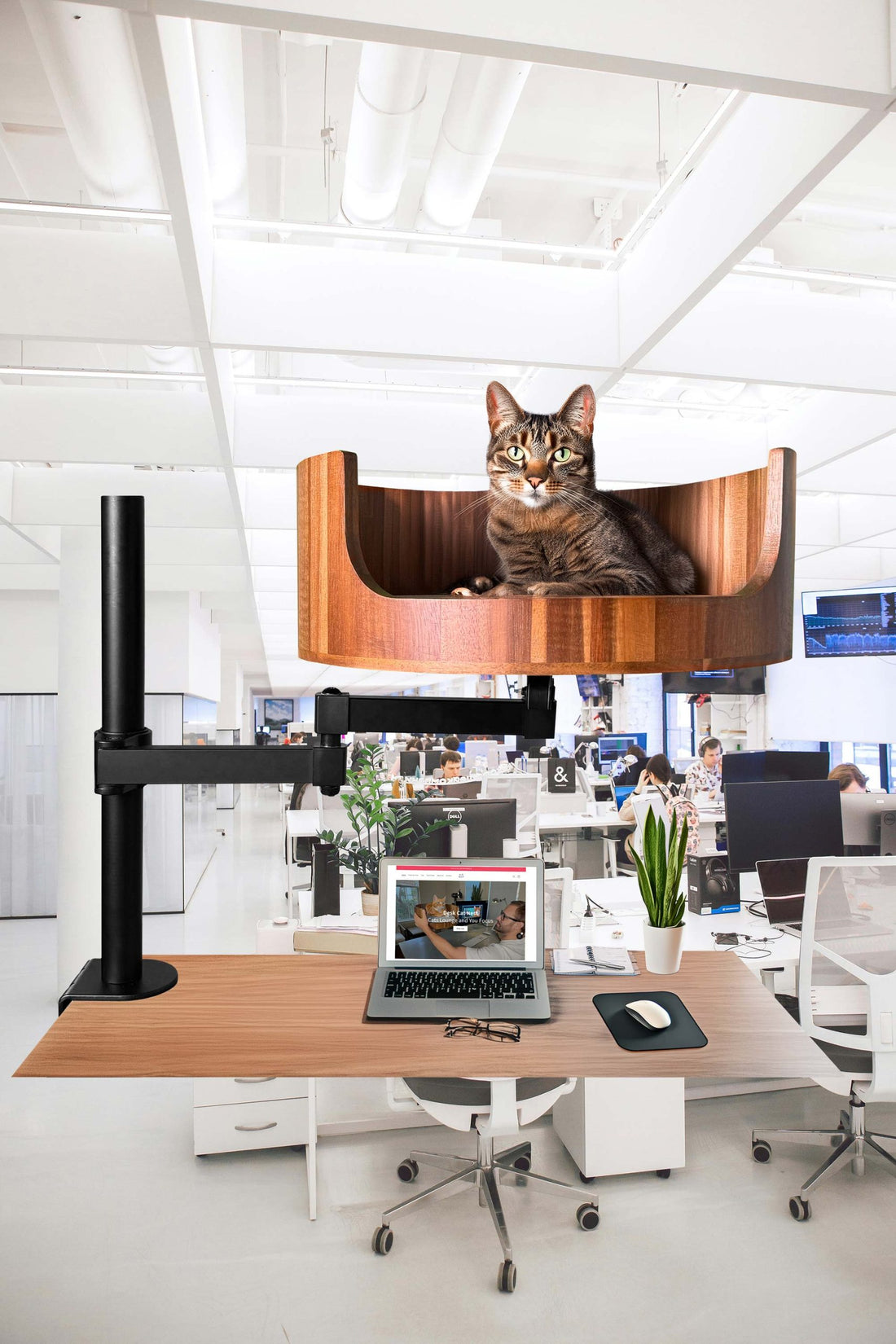
My Cat Growls: Understanding Feline Behavior and Emotions
Share
Many cat owners are familiar with the sound of their feline friend growling, but not everyone may understand the reasons behind this behavior. In our article, "My Cat Growls: Understanding Feline Behavior and Emotions," we delve into the complexities of cat communication and what growling may indicate about your pet's emotional state. Feline behavior is often misunderstood, and learning more about why cats growl can help strengthen the bond between you and your furry companion.
From territorial instincts to feelings of fear or frustration, there are various reasons why a cat may growl in different situations. By examining these behaviors and emotions, cat owners can gain insight into how to better care for and communicate with their pets. Additionally, understanding the underlying reasons behind growling can help prevent conflict or misunderstandings between cats and their human family members. By the end of this article, readers will have a deeper appreciation for the complexity of feline communication and a better understanding of how to decipher and respond to their cat's growling behavior.
1. Growling in cats is a form of communication that can indicate fear, stress, pain, or territorial behavior.
2. Understanding the context in which your cat is growling is crucial in addressing the underlying cause.
3. It is important to observe your cat's body language and vocalizations to decipher the reason behind their growling.
4. Seek veterinary advice if your cat's growling is sudden or excessive, as it could be a sign of medical issues.
5. Building a trusting relationship with your cat through positive reinforcement can help reduce growling behavior.
Understanding Feline Growling Behavior
Feline growling is a vocalization that cats use to communicate their displeasure or discomfort. It is often a sign that they are feeling threatened, scared, or angry. Cats may growl when they feel cornered, when they are defending their territory, or when they are in pain. Understanding the underlying reasons for your cat's growling is crucial in addressing and resolving the issue.
Common Triggers for Cat Growling
There are several common triggers that may cause a cat to growl. These include being approached by unfamiliar animals or people, feeling crowded or overwhelmed, having their personal space invaded, or experiencing pain or discomfort. It's essential to identify the specific trigger that is causing your cat to growl so that you can address the root cause effectively.
Dealing with a Growling Cat
When faced with a growling cat, it's essential to remain calm and avoid escalating the situation. Try to give your cat space and time to calm down on their own. Avoid physically restraining or punishing your cat, as this can increase their stress and aggression. Instead, try to identify the trigger for their growling and address it accordingly. Seeking advice from a veterinarian or animal behaviorist may also be beneficial in resolving the issue.
Case Study: Resolving Growling Behavior in Cats
One case study involves a cat named Luna who would growl whenever approached by strangers. After consulting with a veterinarian, it was discovered that Luna had a history of abuse and was fearful of unfamiliar people. By slowly introducing Luna to new people in a controlled environment and using positive reinforcement techniques, Luna's growling behavior gradually decreased. With patience and understanding, Luna was able to overcome her fear and build trust with her human companions.
Desk Cat Nest FAQ
Why is my cat growling?
Growling in cats can be a sign of fear, aggression, or pain. It is important to observe your cat's behavior and consult with a veterinarian to determine the underlying cause of the growling.
How can a Desk Cat Nest help with my cat's growling?
A Desk Cat Nest provides a safe and cozy space for your cat to retreat to when feeling anxious or threatened. This can help reduce stress levels and alleviate the need for your cat to growl as a form of defense.
Will my cat use the Desk Cat Nest?
Most cats enjoy having cozy and elevated spaces to rest and observe their surroundings. The Desk Cat Nest provides a comfortable and secure space for your cat to relax, which can help reduce growling behavior.
Can I train my cat to stop growling?
Training a cat to stop growling requires patience and consistency. Providing a positive environment with a Desk Cat Nest can help, but it is also important to address any underlying issues causing the growling and work with a professional if needed.
Is the Desk Cat Nest easy to set up?
Yes, the Desk Cat Nest is designed to be easily attached to the edge of most desks or tables. Simply follow the included instructions for a quick and hassle-free setup process.
In conclusion, investing in a Desk Cat Bed can greatly improve your cat's behavior and minimize their growling. By providing a cozy and comfortable space for your feline friend to retreat to, you are giving them a sense of security and ownership. This can help reduce stress and anxiety, ultimately leading to a calmer and happier cat. Additionally, the Desk Cat Bed's compact design allows it to seamlessly blend into your workspace, making it a valuable choice for cat owners who want to keep their furry companions close by. Give your cat the gift of a Desk Cat Bed and enjoy the benefits of a more peaceful and contented pet.



















































